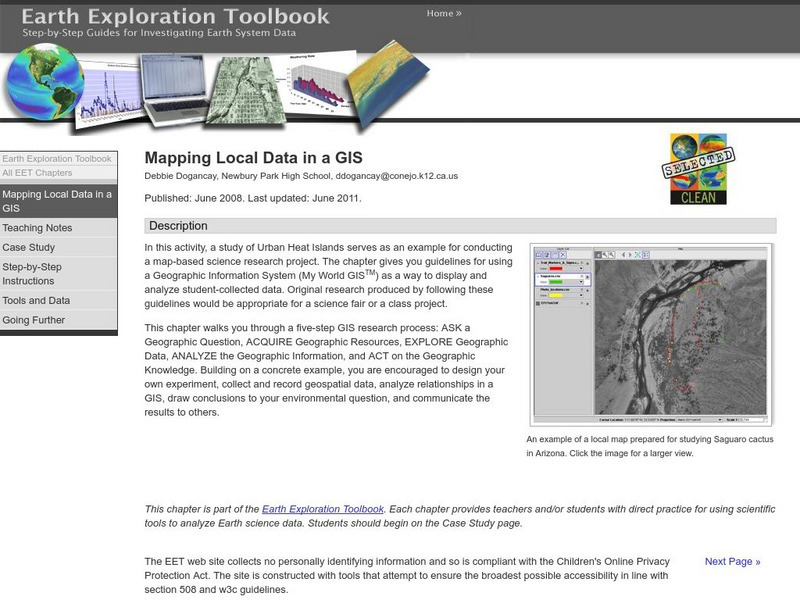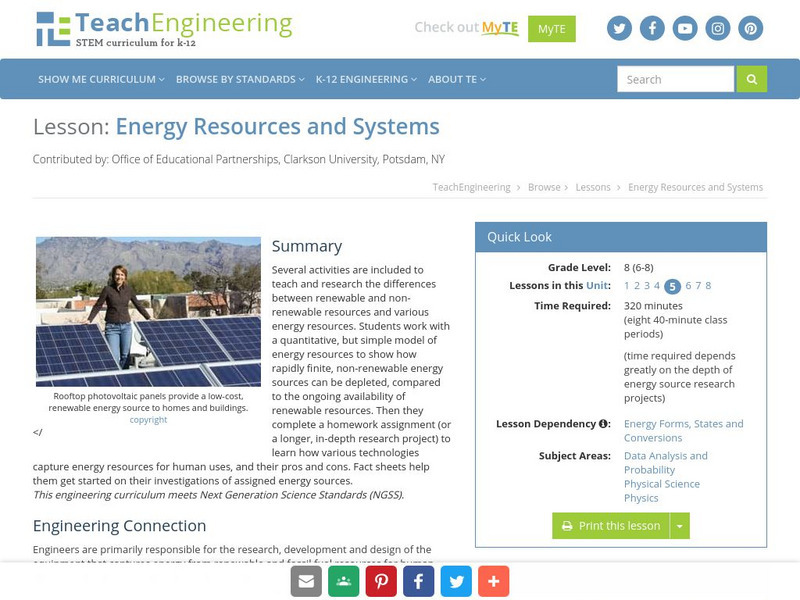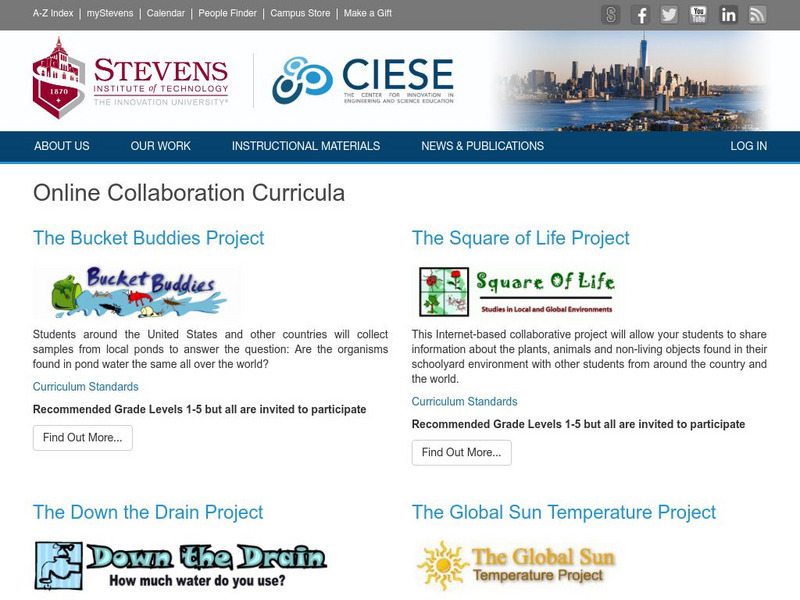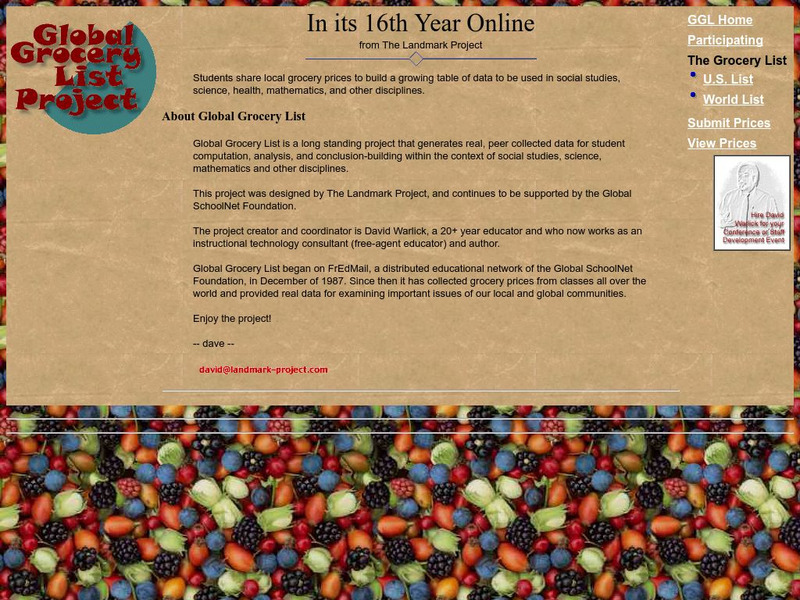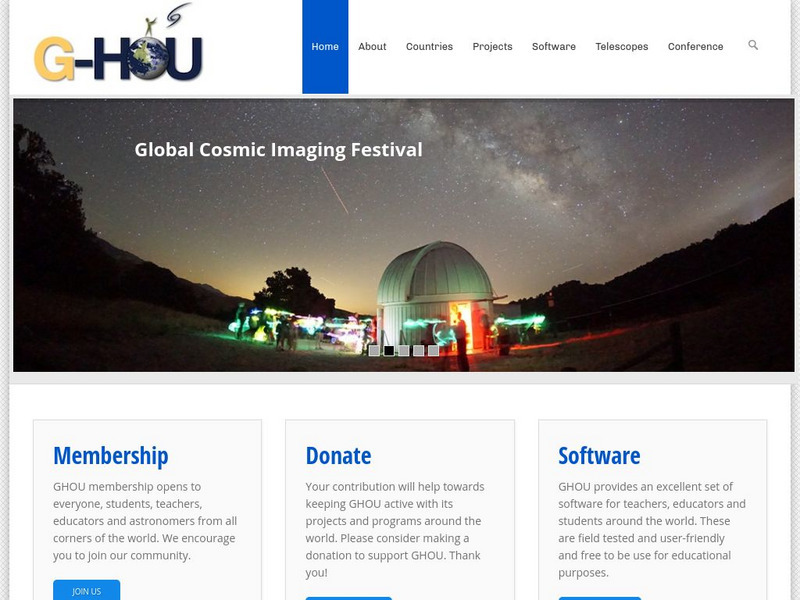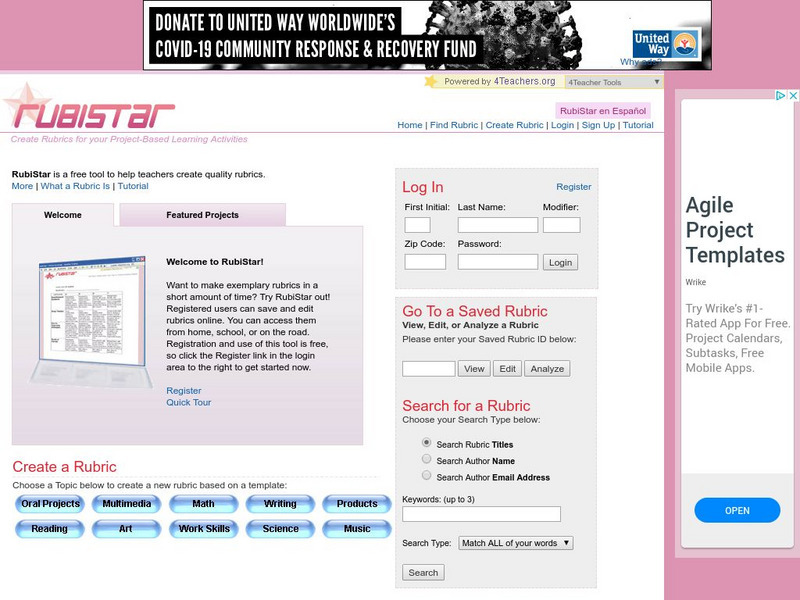Discovery Education
Discovery Education: Science Fair Central: Investigation Project Samples
Explore three science fair project samples about birds, stain removal, and keeping it cool. See how the report is written after the investigation is complete.
Discovery Education
Discovery Education: Science Fair Central: Invention Project Samples
Discover how to present your findings after completing a science fair project. View sample science fair invention projects: junior light switcher, quiet down invention, and stale sandwiches.
Other
National Center for Earth and Space Science Education (Ncesse)
An organization committed to promoting education in the earth and space sciences. Highlights current research, projects students can participate in, professional development opportunities, and educational programs, such as visiting...
Montgomery CountyPublic Schools
Mcps: Using Inspiration to Organize Science Research Project
A 4-minute video showing a teacher explaining what Universal Design for Learning looks like in the context of her Grade 8 Science classroom. She discusses how it is promoting independence with students. The interviewer talks with some...
Science Education Resource Center at Carleton College
Serc: Mapping Local Data in a Gis
In this activity, students will learn how to conduct a map-based science research project using a Geographic Information System (GIS). They will design an experiment, collect and record geospatial data, analyze geospatial relationships...
Other
Buzzle.com: Science Articles
This website provides information on a wide range of science topics, as well as some ideas for experiments and science fair projects. It's a good resource for students doing research.
TeachEngineering
Teach Engineering: Energy Resources and Systems
Several activities are included to teach and research the differences between renewable and non-renewable resources and various energy resources. Students work with a quantitative, but simple model of energy resources to show how rapidly...
Discovery Education
Discovery Education: Science Fair Central
Are you, your students, and their parents wandering lost in the Science Fair desert? Here's an oasis! The Science Fair Central website provides a complete guide to the topic. There's a "Soup to Nuts Handbook" that assists the student in...
PBS
Pbs Kids: Dragonfly Tv Science Fair: Plan
So, you've chosen your topic and done your research, now, you need to plan your investigation. PBS site walks you through some steps to help guide you through the planning process.
Other
Path Finder Science: Tardigrades
This site displays information about a tardigrades research study that students were involved in. Tardigrades are fascinating, tiny creatures that can survive under the most extreme conditions. The structure of the project is there for...
Other
Sacnas: The Biography Project
This site profiles dozens of Chicano/Latino and Native American scientists. Most are still active in their field of research. Searchable by field of science. Also contains links to some fantastic science sites by topic.
Center for Innovation in Engineering and Science Education, Stevens Institute of Technology
Ciese: Collaborative Projects
Using a variety of science topics, these projects link your class with classes around the world in data collection and analysis. There are projects recommended for all grade levels. Begin dates and end dates are listed to help in...
Other
Baltimore Co. Public Schools: Chesapeake Bay Food Webs (Online Research Model)
Food webs lesson, which focuses on Chesapeake Bay habitats, integrates biological concepts with literacy knowledge and skills. Lesson directs students to answer the question, how does a human-caused stress placed on the environment...
TeachEngineering
Teach Engineering: Fun Look at Material Science
Students are introduced to the multidisciplinary field of material science. Through a class demo and PowerPoint presentation, they learn the basic classes of materials (metals, ceramics, polymers, composites) and how they differ from one...
Center for Innovation in Engineering and Science Education, Stevens Institute of Technology
Ciese Collaborative Projects: Down the Drain: How Much Water Do You Use?
How much water do you use everyday? Find out in this engaging investigation, where you compare your water usage with your classmates and other people around the world. An exploration filled with lots of math and science that students are...
Other
Global Grocery List Project: Homepage
At this site from the Global Grocery List Project, students collect data on the prices of common grocery items and submit their findings. They can then compare the data they collected to data from students around the world. There are...
Other
Hands on Universe (Hou)
HOU trains teachers in how to use astronomy tools and its curriculum materials for science education. HOU is now part of GHOU, or Global Hands-On Universe, and is linked to astronomy scientists in countries all over the world. A world...
Alabama Learning Exchange
Alex: Dna Technology Project
Students will research current uses for DNA technology. Students identify a variety of ways that DNA technology can be used. Finally, the students create a DNA Technology project using technology. This lesson plan was created as a result...
George Mason University
George Mason University: The Blackout History Project
A web-based research project on recent science and technology, this offers those you were part of the Blackouts of '65/'77/'03 to tell their story online and for others to read about them.
Science and Mathematics Initiative for Learning Enhancement (SMILE)
Smile: Sample Science Fair Judging Forms
Two nice examples of documents you can use for judging science fair projects, one for judge registration, etc. and the other for actual project judging. This particular form comes from the Chicago public schools. Adapt it to your own...
Other
Rubi Star: Create Rubrics for Your Project Based Learning
RubiStar is a tool that helps teachers develop rubrics. After students have done the project and the rubric has been used to grade it, you can enter the data into RubiStar to determine which items are problematic for the class as well.
Other
National Geographic: Jason Learning
[Free Registration/Login Required] Educators and students will enjoy visiting the JASON Project, a NASA and National Geographic cooperation which works to provide accurate and intriguing scientific knowledge for students.
University of Washington
Washington U: Model for Conducting Scientific Research
This page outlines the scientific method, step by step.
Science Education Resource Center at Carleton College
Serc: Case Study: Zhouqu, China Landslide
This is a 'citizen science' research project where students to apply their knowledge of landslide processes in an investigation of the natural and anthropogenic causes of a real-world landslide catastrophe. Students produce a 'magazine'...




